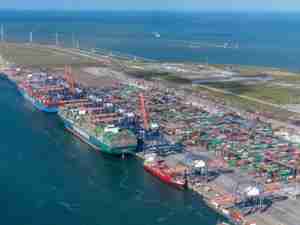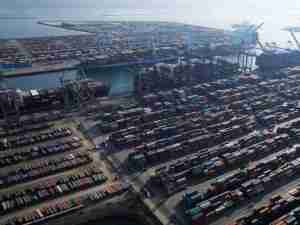The public terminals handled 753,000 tons of general cargo in November compared to 653,000 tons in November 2009. Total cargo tonnage was up 4 percent in November 2010 from October 2010. During the first 11 months of calendar year 2010, general cargo at the public terminals is up 12 percent compared to the first 11 months of calendar year 2009.
In October, the public terminals handled 42,830 cars, more autos in one month than during any other month in the Port’s history. During the summer, the Port announced it had handled more TEU containers for three consecutive months than at any other previous time.
The Port of Baltimore generates about 16,700 direct jobs. Out of about 360 U.S. ports, Baltimore is ranked number one for handling imported roll on/roll off and imported forest products, gypsum, and sugar. The Port ranks second nationally for exported autos. The Port is responsible for about $3.7 billion in personal wage and salary income. Activities at the Port of Baltimore generate nearly $400 million in state and local tax revenues.










